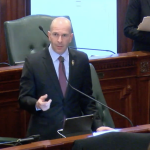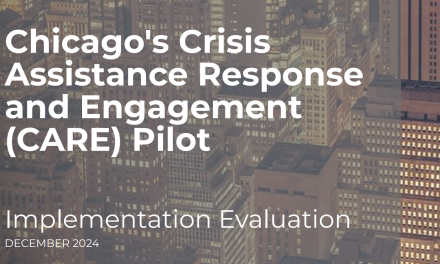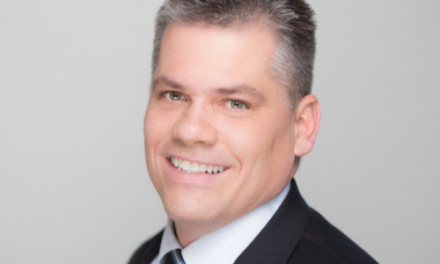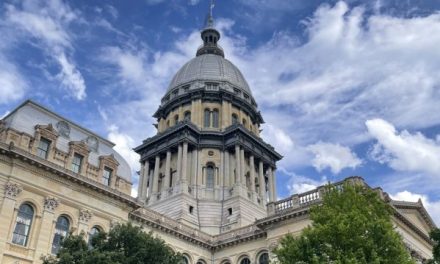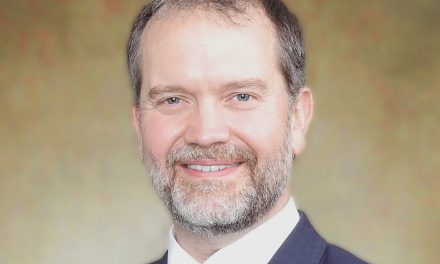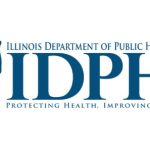
On the record with Illinois Primary Health Care Association CEO Jordan Powell
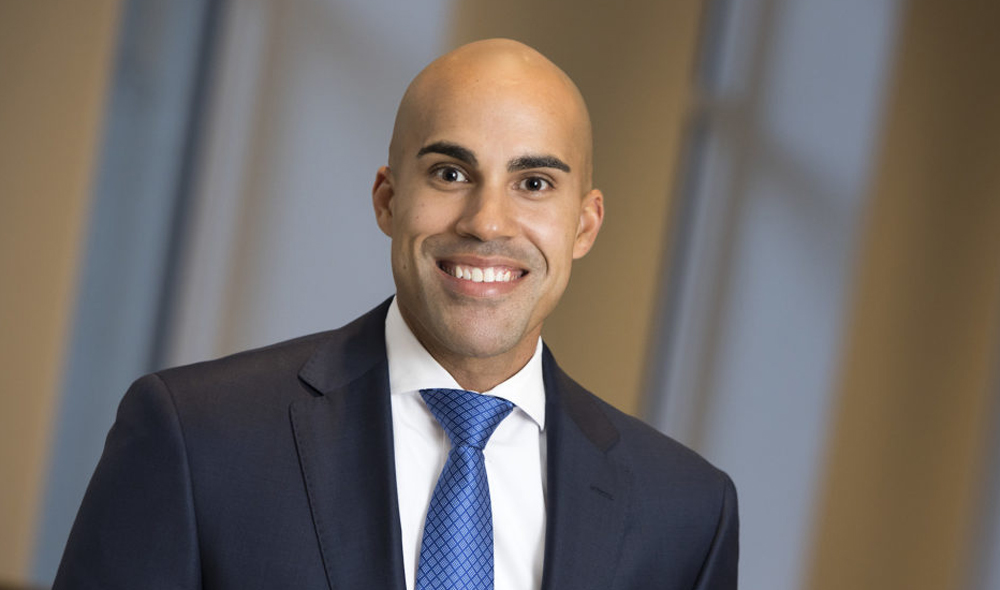
Community health centers are on the “frontlines” of the healthcare fight against COVID-19, according to Illinois Primary Health Care Association CEO Jordan Powell.
Powell spoke Wednesday afternoon with Health News Illinois about the centers’ role in addressing the pandemic, challenges they’re facing and how policymakers can help.
Edited excerpts are below.
HNI: As of (Wednesday), what are you hearing from your members regarding COVID-19 cases in Illinois?
JP: We’re hearing numerous challenges coming from our members, but access to personal protective equipment is probably at the top of the list. It’s clear now that there is community spread of COVID-19. And we’ve made it clear that the state should utilize its network of health center sites that are located throughout the state in both urban and rural areas to keep our communities safe and healthy. We are on the front lines of this battle and simply can’t be overlooked. But another challenge for our health centers is that we are rescheduling medical and dental visits to minimize potential exposure to our patients, which presents additional financial challenges. So health centers will soon have to make some tough decisions that will undoubtedly have a long-lasting impact on the patient’s communities they serve.
HNI: What role are community health centers playing in the fight against COVID-19?
JP: The spread of COVID-19 has resulted in countless individuals looking to their health center for guidance and support, which only amplifies the health center’s role as a health system safety net. So in response, health centers are reviewing all triage protocols and implementing strategies to categorize patients by symptoms and risk levels. They’re instituting protocols should someone present to the health center with COVID-19 symptoms and they’re also determining what patient care activities can be done in a manner that reduces patient traffic in their clinics, such as telehealth. And perhaps, most importantly, health centers are conducting outreach and education so that patients know the appropriate actions they need to take to keep themselves healthy.
Now, we’re hearing that the federal government may utilize health centers to serve as testing sites but we are awaiting more information. But to most effectively and safely serve as testing locations, they must have an adequate supply of [personal protective equipment] and other necessary resources. Our health centers are prepared in the sense that this isn’t the first time that health centers have been called on to address a public health crisis. And we’ve been able to achieve a lot with a limited amount of resources. However, and I know I’m sounding like a broken record here, they don’t have the adequate amount of (personal protective equipment) and like many safety-net providers in the state, they’ve been significantly underfunded for far too long. Many are or will be experiencing financial hardships and will have to make tough decisions that could have, as I said before, a devastating, long-lasting impact on the state’s most underserved communities.
HNI: Another challenge for health centers, as you mentioned, is that they have had to reschedule medical and dental preventive visits. Can you tell me more about the impact that is having?
JP: Health centers are rescheduling medical and dental preventive visits to minimize potential exposure to their patients, which presents additional financial challenges. If health centers aren’t seeing patients, they aren’t being reimbursed for services. That is putting a huge financial strain on health centers, and they will soon be forced to consider staff layoffs and/or potential site closures if there isn’t quick and decisive action. We’re really pleased to see that (the Department of Healthcare and Family Services) is taking action to provide greater flexibility through telehealth, and we think it is a great first step. With that said, we must all recognize that the scale of this pandemic is unlike anything any of us have ever dealt with. While any provider can sustain for a period of time, the need for government support will increase for all of us as the impact of this crisis continues to grow.
HNI: You and other healthcare organizations sent a list of recommendations to the governor last week on what’s needed to address the COVID-19 pandemic. Can you tell me a bit more about these policies?
JP: We agree with the entirety of the letter, and that’s why we signed on in support. It’s really encouraging to see that many of the priorities raised, like free testing and telehealth flexibility, are already in the works. Our ability to effectively combat this pandemic hinges on the availability of testing, getting patients the healthcare they need with as few barriers as possible, and giving healthcare providers and local authorities the flexibility to respond to the needs of their communities. It is also incredibly important to get individuals enrolled in Medicaid and get them connected to the care they need as soon as possible.
HNI: What more can policymakers do?
JP: Efforts must be made across the board to expand testing capabilities in addition to providing adequate (personal protective equipment) as soon as possible. It is also incredibly important to reduce the patient foot traffic at healthcare sites, which is why we need policymakers to move quickly to eliminate reimbursement barriers and allow for greater flexibility and help health centers treat patients. And I know our healthcare leaders at the state are working as fast as they can and I am confident in the coming days we will continue to see more from them that provides help in this area. I kind of touched earlier on the need for policymakers to get resources out the door to safety-net providers and I think that’s really important.
HNI: How do you feel the state has done so far in its response to the pandemic?
JP: The governor is doing a tremendous job and he has demonstrated true leadership by being transparent and making tough decisions in a difficult situation. But he can only do so much with a limited amount of resources. We’re also having conversations with state leaders every day, and I can tell you that they’re being very responsive. And it’s my belief that they’re doing as much as they possibly can.
HNI: Before this pandemic started, the association had started to make additional hires, rebranded and increase its presence in the Capitol. Can you tell me a bit about the growth and – once everything goes back to normal – what the goals are for the association?
JP: I think many people would agree that community health centers offer a tremendous amount of value, yet many people still do not know they exist. And I think that’s a big problem. So one overarching goal of ours has been increasing awareness of health centers and also changing any mindset that they just serve a certain population. We believe that everyone should want to get their care at a community health center because of their ability to provide high-quality, integrated care that serves the entire person. And in that respect, we are reshaping what primary care means today. It’s not just seeing your primary care physician, it’s having access to a full range of integrated services including medical, dental, mental health, substance use disorder treatment, pharmacy, nutrition and other vital services at one location. Frankly, it’s the best model of care available to patients today. To achieve this goal, we’ve implemented a number of changes. We have and will continue to build a strong team. We’re becoming more visible and vocal as we work hard to educate policymakers, legislators and the general public. And we’re rebranding, which includes a new logo, new colors, new messaging and a new website that will launch at the end of next month. The crux of all of this is to better tell the health center story and highlight our members. And internally at the association, we’ve also diversified our funding streams and increased efficiencies to support long and short-term growth. But at the end of the day, we are a member trade association and we want our members to view us as the best healthcare trade association. We have spent a lot of time listening to what our members need, what’s working and where we are falling short. We’ve made considerable progress, but we still have so much to accomplish to ensure they have the necessary education, training, technical assistance and resources so they can focus on what they do best, which is providing care.
In regard to the hirings, we have Sara Howe coming from the Illinois Association for Behavioral Health to serve as our executive vice president, and she’s the third behavioral health advocate to join us within the last year, in addition to Cyrus Winnett and Amber Kirchhoff. They’re all very highly accomplished individuals that just so happen to have behavioral health experience. But it also makes a lot of sense for our organization and our members since patients seeking mental health services at a community health center increased by 90 percent since 2018, with 98 percent of health centers now offering behavioral healthcare services. In addition, 57 percent of health centers now provide substance use disorder treatment services, triple the amount since that same time period with nearly two-thirds of health centers employing medication-assisted treatment providers. We expect those numbers to grow as the demand for behavioral health and substance use services at community health centers increases, in addition to the changing healthcare delivery system with a renewed focus on integrating services, particularly primary care and mental health.
HNI: What are your legislative priorities when the session resumes?
JP: First and foremost, the health and well-being of our state and country is what’s most important right now, so our legislative priorities have taken a back seat for the time being. Prior to COVID-19, we were having discussions with HFS and legislators on a plan to expand healthcare access for 300,000 individuals while hiring hundreds of new providers. I fully expect that when we have made it through this crisis that now requires our full and immediate attention, we’ll have an opportunity to discuss those plans again. Our goal has been and always will be to provide care to anyone that walks through the doors of a health center. Given our strong track record of improving quality outcomes and reducing healthcare expenditures through our integrated care model, we hope to be seen as a solution and strong partner of the state.
Health News Illinois is removing the password on all stories related to the coronavirus. For the latest developments follow us on Twitter at @healthnewsil or check out our website. For complete healthcare coverage, sign up for a free trial to our daily email newsletter.



